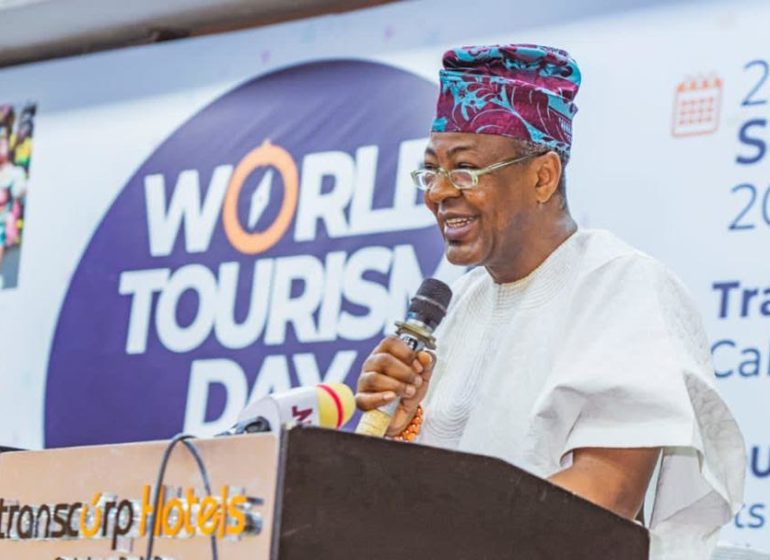The director-general of the Nigerian Tourism Development Corporation (NTDC), Folorunsho Coker has stated that the creative sector is not designed to be funded with government loans.
This was made known by Coker in an interview with TheCable when questioned about the place of state funding in Nigerian show business.
The Central Bank of Nigeria (CBN) in 2019 announced its Creative Industry Financing Initiative (CIFI) offering single-digit interest loans of up to N30 million for film production and N500 million for movie distribution.
The loan offered a 10-year repayment timespan for movies while accounting for music and software development.
A CBN source, when contacted, promised to obtain feedback from the apex bank’s development finance department but neither responded to subsequent texts nor answered phone calls seeking to ascertain the status of the fund.
Coker stated that the government can give grants from time to time or offer tax concessions to stimulate growth.
He however argued that the creative sector globally is designed for B2B funding, not government-sourced loans.
“Access to finance for the hospitality, transportation, and tourism industry is too expensive,” the DG explained.
“Somebody who wants to bring in a container of tyres will probably make forty to fifty percent of what the whole investment is worth in profit, within a finite amount of time. It’s certain. You make your profit and pay interest.
“The creative industry cannot compete with that level of certainty. It’s not every track that blows up. It’s not every movie that will sell out. Because of that risk, it’s meant for private sector entities, not government funding.
“Maybe a few government grants and tax concessions [can work]. But the funding of creative industries around the world is primarily business-to-business. It’s promoters to artistes.”
Coker said there’s a need for the private sector to invest in other components of the creative industry value chain.
“Right now, we have banks doing concerts. A guy rents out sound equipment, but banks have their own gadgets. Banks have provisions for lighting, including a partnership with hotels and event centres,” he added.
“There’s a need for that to change so we don’t cut the middlemen out. We should invest in them so they can grow to the point where the industry has a solid foundation that we can build out internationally.
“Borrowing to make a movie takes the whole profits in the film to the lenders. The same goes for the music.
“It is what should be looked at by the private sector, and there could be some tax concessions or a basket of unorthodox financial instruments to encourage the creative industry to access funding at single digits.
“Anything over 9% doesn’t pay. And the tenure has to be a revolving one that prevents them from feeling the burden of the debt, so they can grow their creativity knowing that finance is not a threat.”

